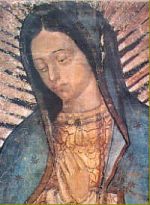Fathers of the Church
Epistle CXX: to Claudius in Spain
by Gregory the Great in 590-604 | translated by James Barmby, D.d
Gregory to Claudius, &c.
The renown of good deeds being fragrant after the manner of ointment, the odour of your glory has extended from the Western parts as far as here. Besprinkled by the sweetness of which breath of air, I declare that I greatly loved one whom I knew not, and within the bosom of my heart seized thee with the hand of love; nor did I love without already knowing him to be one whose good qualities I had learnt. For of him who is known to me by great intenseness of feeling, but remains unknown by bodily vision, I undoubtedly can say truly that I know his person, though I know not his home. Now herein is a great assertion of your good repute, that your Glory is said to cleave sedulously to the excellent king of the Goths; since, while good men always displease bad ones, it is certain that you are good, who have pleased one that is good. For this reason, addressing you with the greeting that is due to you, I hope that you are being exercised in these things which you have begun, so that that true sentence of Solomon may be fulfilled in you—The path of the just is as a shining light, and groweth unto the pearl day (Prov iv. 18). For, now that the light of truth shines upon us, and the sweetness of the heavenly kingdom discloses itself to our minds, it is indeed already day, but not yet perfect day. But it will then be perfect day, when there shall be no longer anything of the night of sin in our souls. But do you grow unto the perfect day, that, until such time as the heavenly country shall appear, there may be spreading increase of good works here; to the end that in the retribution hereafter the fruit of reward may be by so much the greater as earnestness in labour has been increasing now. Wherefore we commend to your Glory our most beloved son Cyriacus, the Father of our monastery, that, after he has accomplished what has been enjoined him, there be no hindrance to delay his return. May Almighty God guard you by the protection of His heavenly arm, and grant unto you to be glorious both now among men and after long courses of years among the angels.
Taken from "The Early Church Fathers and Other Works" originally published by Wm. B. Eerdmans Pub. Co. in English in Edinburgh, Scotland, beginning in 1867. (LNPF II/XIII, Schaff and Wace). The digital version is by The Electronic Bible Society, P.O. Box 701356, Dallas, TX 75370, 214-407-WORD.






